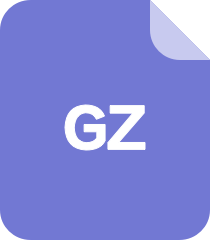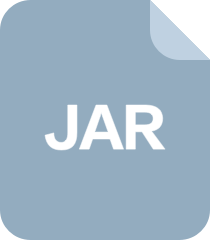MySQL Connector/J是MySQL数据库与Java应用程序之间的重要桥梁,它提供了JDBC(Java Database Connectivity)驱动程序,使得Java开发者能够方便地在Java应用中存取MySQL数据。标题中的"mysql-connector-java-5.1.47.zip"表示的是MySQL Connector/J的一个特定版本,即5.1.47版本的压缩包。 MySQL Connector/J 5.1.47是针对MySQL服务器的一个稳定版本,它支持Java SE 5、6、7和8。这个版本包含了所有必要的类和资源文件,使得Java应用程序可以通过JDBC接口与MySQL数据库进行通信。下面将详细解释相关的知识点: 1. **JDBC(Java Database Connectivity)**:JDBC是Java API,用于与各种类型的数据库建立连接,执行SQL语句,并获取结果。MySQL Connector/J实现了JDBC接口,使得Java应用可以调用标准的JDBC方法来操作MySQL数据库。 2. **MySQL Connector/J**:它是MySQL官方提供的JDBC驱动,提供了全面的MySQL数据库支持,包括事务处理、批处理、存储过程、预编译的SQL语句等。通过这个驱动,Java开发者无需了解数据库底层细节,只需使用Java代码即可进行数据库操作。 3. **版本号5.1.47**:这个版本号代表了驱动的稳定性和兼容性。5.1系列是MySQL Connector/J的一个长期支持版本,它修复了许多已知问题,增强了性能,并提供了对MySQL服务器5.1.x至5.7.x版本的支持。 4. **Java SE兼容性**:5.1.47版本的驱动支持Java SE 5、6、7和8,这意味着它可以在这些Java版本的环境中运行,为广泛的Java应用提供数据库连接服务。 5. **使用方式**:在Java应用中,需要添加mysql-connector-java-5.1.47.jar到类路径(classpath)中,然后通过`Class.forName("com.mysql.jdbc.Driver")`加载驱动,`Connection conn = DriverManager.getConnection(url, user, password)`建立连接,接着就可以执行SQL语句了。 6. **配置和优化**:除了基本的连接,MySQL Connector/J还允许开发者通过配置属性来优化连接,例如设置连接超时、启用或禁用SSL、指定字符集等。 7. **安全注意事项**:在实际应用中,应避免在代码中硬编码数据库凭证,而应使用环境变量或者配置文件来存储敏感信息。此外,定期更新驱动到最新版本有助于防止潜在的安全漏洞。 8. **错误处理和异常**:在使用MySQL Connector/J时,可能会遇到各种异常,如`SQLException`。开发者应当妥善处理这些异常,确保程序的健壮性。 9. **事务管理**:JDBC支持ACID(原子性、一致性、隔离性和持久性)事务,MySQL Connector/J也不例外,开发者可以利用这些特性来确保数据的一致性和完整性。 10. **连接池**:在大型应用中,通常会使用连接池(如C3P0、HikariCP、Apache DBCP等)来管理和复用数据库连接,以提高性能并减少资源消耗。MySQL Connector/J可以很好地与这些连接池集成。 "mysql-connector-java-5.1.47.zip"是Java开发者连接MySQL数据库的重要工具,它提供了高效、稳定的JDBC接口,使得Java应用能够轻松地进行数据库操作。理解并掌握其使用方法和特性对于开发Java数据库应用至关重要。
 mysql-connector-java-5.1.47.zip (381个子文件)
mysql-connector-java-5.1.47.zip (381个子文件)  ca-truststore 1KB
ca-truststore 1KB CHANGES 243KB
CHANGES 243KB client-keystore 2KB
client-keystore 2KB COPYING 18KB
COPYING 18KB tb2-data.txt.gz 232KB
tb2-data.txt.gz 232KB mysql-connector-java-5.1.47-bin.jar 984KB
mysql-connector-java-5.1.47-bin.jar 984KB mysql-connector-java-5.1.47.jar 984KB
mysql-connector-java-5.1.47.jar 984KB c3p0-0.9.1-pre6.jar 519KB
c3p0-0.9.1-pre6.jar 519KB jboss-common-jdbc-wrapper.jar 49KB
jboss-common-jdbc-wrapper.jar 49KB jboss-common-jdbc-wrapper-src.jar 35KB
jboss-common-jdbc-wrapper-src.jar 35KB slf4j-api-1.6.1.jar 25KB
slf4j-api-1.6.1.jar 25KB ConnectionRegressionTest.java 509KB
ConnectionRegressionTest.java 509KB StatementRegressionTest.java 355KB
StatementRegressionTest.java 355KB DatabaseMetaData.java 327KB
DatabaseMetaData.java 327KB ResultSetImpl.java 281KB
ResultSetImpl.java 281KB ResultSetRegressionTest.java 240KB
ResultSetRegressionTest.java 240KB ConnectionImpl.java 214KB
ConnectionImpl.java 214KB MysqlIO.java 201KB
MysqlIO.java 201KB PreparedStatement.java 197KB
PreparedStatement.java 197KB MetaDataRegressionTest.java 193KB
MetaDataRegressionTest.java 193KB ConnectionPropertiesImpl.java 187KB
ConnectionPropertiesImpl.java 187KB MysqlErrorNumbers.java 137KB
MysqlErrorNumbers.java 137KB SyntaxRegressionTest.java 115KB
SyntaxRegressionTest.java 115KB ServerPreparedStatement.java 104KB
ServerPreparedStatement.java 104KB FabricMySQLConnectionProxy.java 103KB
FabricMySQLConnectionProxy.java 103KB StatementImpl.java 97KB
StatementImpl.java 97KB UpdatableResultSet.java 95KB
UpdatableResultSet.java 95KB ConnectionTest.java 91KB
ConnectionTest.java 91KB StringUtils.java 91KB
StringUtils.java 91KB StatementRegressionTest.java 90KB
StatementRegressionTest.java 90KB CallableStatement.java 87KB
CallableStatement.java 87KB ConnectionWrapper.java 86KB
ConnectionWrapper.java 86KB MultiHostMySQLConnection.java 84KB
MultiHostMySQLConnection.java 84KB CallableStatementWrapper.java 82KB
CallableStatementWrapper.java 82KB SQLError.java 81KB
SQLError.java 81KB StringUtilsTest.java 77KB
StringUtilsTest.java 77KB DatabaseMetaDataUsingInfoSchema.java 73KB
DatabaseMetaDataUsingInfoSchema.java 73KB CallableStatementRegressionTest.java 72KB
CallableStatementRegressionTest.java 72KB StatementsTest.java 69KB
StatementsTest.java 69KB MultiHostConnectionTest.java 60KB
MultiHostConnectionTest.java 60KB CharsetMapping.java 58KB
CharsetMapping.java 58KB MetaDataRegressionTest.java 58KB
MetaDataRegressionTest.java 58KB StatementsTest.java 55KB
StatementsTest.java 55KB ResultSetRow.java 51KB
ResultSetRow.java 51KB BaseTestCase.java 47KB
BaseTestCase.java 47KB ConnectionProperties.java 37KB
ConnectionProperties.java 37KB StringRegressionTest.java 35KB
StringRegressionTest.java 35KB MetadataTest.java 35KB
MetadataTest.java 35KB PreparedStatementWrapper.java 35KB
PreparedStatementWrapper.java 35KB LoadBalancedConnectionProxy.java 35KB
LoadBalancedConnectionProxy.java 35KB JDBC4CallableStatementWrapper.java 35KB
JDBC4CallableStatementWrapper.java 35KB UtilsRegressionTest.java 34KB
UtilsRegressionTest.java 34KB NonRegisteringDriver.java 33KB
NonRegisteringDriver.java 33KB Field.java 33KB
Field.java 33KB JDBC4MysqlSQLXML.java 30KB
JDBC4MysqlSQLXML.java 30KB CharsetTest.java 29KB
CharsetTest.java 29KB ReplicationConnectionProxy.java 28KB
ReplicationConnectionProxy.java 28KB StatementsTest.java 27KB
StatementsTest.java 27KB EscapeProcessor.java 26KB
EscapeProcessor.java 26KB StatementWrapper.java 26KB
StatementWrapper.java 26KB ExportControlled.java 26KB
ExportControlled.java 26KB Util.java 25KB
Util.java 25KB TimeUtil.java 24KB
TimeUtil.java 24KB ResultSetMetaData.java 24KB
ResultSetMetaData.java 24KB BufferRow.java 24KB
BufferRow.java 24KB MysqlXAConnection.java 23KB
MysqlXAConnection.java 23KB DataSourceRegressionTest.java 23KB
DataSourceRegressionTest.java 23KB BlobFromLocator.java 22KB
BlobFromLocator.java 22KB JDBC4UpdatableResultSet.java 21KB
JDBC4UpdatableResultSet.java 21KB Buffer.java 20KB
Buffer.java 20KB ResultSetTest.java 20KB
ResultSetTest.java 20KB FailoverConnectionProxy.java 19KB
FailoverConnectionProxy.java 19KB MysqlDefs.java 19KB
MysqlDefs.java 19KB MultiHostConnectionProxy.java 19KB
MultiHostConnectionProxy.java 19KB JDBC4ResultSet.java 18KB
JDBC4ResultSet.java 18KB UnreliableSocketFactory.java 18KB
UnreliableSocketFactory.java 18KB JDBC4PreparedStatementWrapper.java 18KB
JDBC4PreparedStatementWrapper.java 18KB MicroPerformanceRegressionTest.java 18KB
MicroPerformanceRegressionTest.java 18KB StressRegressionTest.java 18KB
StressRegressionTest.java 18KB XmlRpcClient.java 17KB
XmlRpcClient.java 17KB DateTest.java 16KB
DateTest.java 16KB XATest.java 16KB
XATest.java 16KB Connection.java 15KB
Connection.java 15KB CallableStatementTest.java 15KB
CallableStatementTest.java 15KB PooledConnectionRegressionTest.java 14KB
PooledConnectionRegressionTest.java 14KB ProfilerEvent.java 14KB
ProfilerEvent.java 14KB BlobRegressionTest.java 13KB
BlobRegressionTest.java 13KB Blob.java 13KB
Blob.java 13KB RowDataDynamic.java 13KB
RowDataDynamic.java 13KB TestRegressions.java 13KB
TestRegressions.java 13KB RowDataCursor.java 13KB
RowDataCursor.java 13KB LoadStorePerfTest.java 13KB
LoadStorePerfTest.java 13KB Security.java 12KB
Security.java 12KB MysqlDataSource.java 12KB
MysqlDataSource.java 12KB JDBC4ConnectionWrapper.java 12KB
JDBC4ConnectionWrapper.java 12KB ConnectionRegressionTest.java 11KB
ConnectionRegressionTest.java 11KB UpdatabilityTest.java 11KB
UpdatabilityTest.java 11KB ResultSetTest.java 10KB
ResultSetTest.java 10KB ServerController.java 10KB
ServerController.java 10KB StandardSocketFactory.java 10KB
StandardSocketFactory.java 10KB- 1
- 2
- 3
- 4

- 粉丝: 0
- 资源: 3
 我的内容管理
展开
我的内容管理
展开
 我的资源
快来上传第一个资源
我的资源
快来上传第一个资源
 我的收益 登录查看自己的收益
我的收益 登录查看自己的收益 我的积分
登录查看自己的积分
我的积分
登录查看自己的积分
 我的C币
登录后查看C币余额
我的C币
登录后查看C币余额
 我的收藏
我的收藏  我的下载
我的下载  下载帮助
下载帮助

 前往需求广场,查看用户热搜
前往需求广场,查看用户热搜最新资源
- 基于ssm的公务员招考信息发布平台源码(java毕业设计完整源码+LW).zip
- Quartz 在项目中的使用实例,可以动态增删改查定时任务,包括 Quartz 的优秀配置
- (176958828)Java+springboot超市会员积分管理系统的设计与实现
- (178477228)超市会员积分管理系统主要用于实现了企业管理数据统计等
- (7674260)操作系统试卷
- 基于ssm的风顺农场供销一体系统的设计与实现源码(java毕业设计完整源码+LW).zip
- (177673816)以下是一个简单的Python代码,可以模拟春节烟花的效果:
- 高度灵活小机械手sw18可编辑全套设计资料100%好用.zip
- 数据库基本操作.sql
- 基于ssm的健达企业项目管理系统的设计与实现源码(java毕业设计完整源码+LW).zip
- 纵维立方 Anycubic Kobra 2 Neo 高温(285)固件
- (29868230)网上订餐系统的设计与实现
- 聚丙烯膜全球市场调研报告:2023年中国聚丙烯市场规模已达3424.86亿元
- (175403238)蚁狮优化算法(ALO)源代码+23个经典测试函数
- 图书管理设计【陈表达原创】.accdb
- (177354392)多目标蚁狮优化算法(MOALO)【含Matlab源码 1598期】.zip


 信息提交成功
信息提交成功